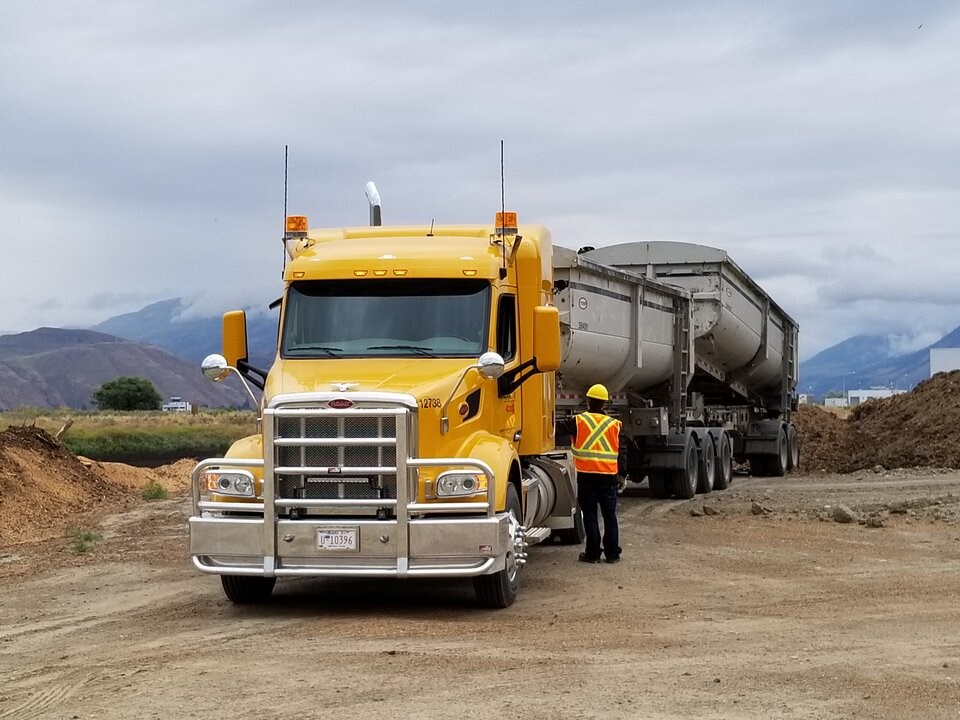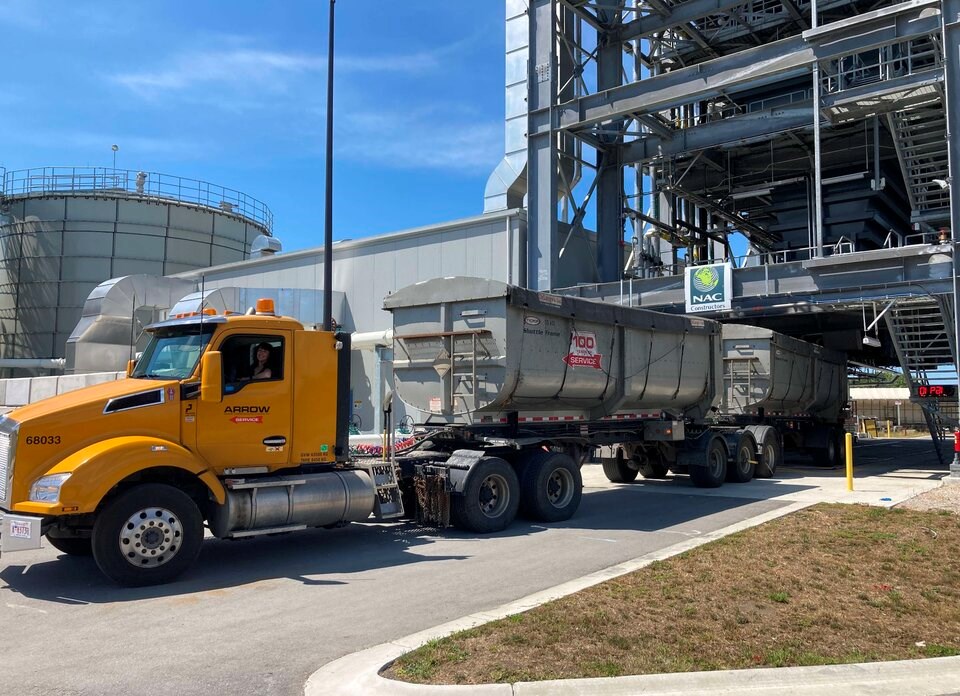Metro Vancouver has passed a plan to swap diesel feeding a fleet of heavy-duty trucks in favour of a low-carbon fuel made from inedible animal fats and used cooking oil.
The phase-out of fossil fuel-based diesel will apply to a fleet of trucks that transports residual waste from the regional body’s drinking and wastewater plants to farms and construction sites across B.C. and Alberta.
Janelle Hunt, a program manager at Metro’s liquid waste services department, said the transportation of residuals by its contractor, Arrow Transportation Systems Inc., is the division’s largest source of energy-based emissions. It’s also the one the regional government has the most control over.
Over a five-year contract, the bio-fuel is expected to eliminate more than 11,000 tonnes of greenhouse gases, a 65 per cent reduction.
“It will significantly reduce our greenhouse gas emissions,” Hunt said.
One benefit of renewable diesel is that it can be put into existing trucks. On the other hand, said Hunt, its use will be limited to routes that have appropriate fuelling stations.
Another option to launch a green hydrogen and electric vehicle pilot — plans that would have got Metro involved on the ground level of emerging zero-emissions technologies in trucking — was shot down by a Metro committee before it made it to the board vote.
The bio-diesel-fuelled long-distance hauling will involve transporting loads up to 40 tonnes using double trailers.
Some trucks will pick up loads of residuals leftover from a treatment process at the Seymour Capilano drinking water filtration plant. Often made up of silt, the material is later chemically bound together and used in cement manufacturing.
Much of the truck fleet will transport loads of bio-solids from wastewater plants across the region.

Left over from the wastewater treatment process, the material is treated and heated to reduce odours and kill pathogens. At that point, the bio-solids become nutrient-rich fertilizers that have been used to reclaim landfills and mines, fertilize range lands and regional parks, and has been regularly sold to the public to boost growth in backyard gardens.
“It’s a moist, peat-like substance. You mix it with sand and wood and the end result is like a landscape soil,” said Hunt. “I have some in my garden.”
Over the next 15 years, upgrades to wastewater facilities across the region — in particular, at the Iona Island Wastewater Treatment Plant in Richmond — are expected to lead to a doubling in the volume of bio-solids.
The bio-diesel will add a $1.76-million premium over five years to a $75.6-million contract with the transportation company.
“I think we are on the leading edge of this,” said Hunt, pointing to hard-to-decarbonize transportation industries like heavy-duty hauling, rail and ships. “It’s an option for those industries that aren’t ready for zero-emissions technology yet.”
“It’s the first step.”






